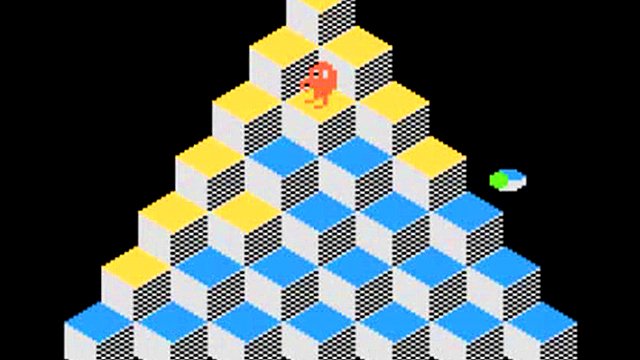If you’re one of those people who feel that you’ve learned everything there is to know about Atari’s video game Q*Bert then you’re in for one hell of a surprise.
According to the BBC’s article, an AI program has managed to beat the game, in a way that is as unconventional as it is radical. The AI used trial and error to uncover a minor error in the game’s coding, using it in order to score a gigantic amount of points. And I bet it didn’t even break a sweat!
It is believed that no human player of Q*Bert is believed to have ever uncovered the tricks the AI used in order to rack up such an impressively high score.
AI and video games have gone hand in hand for a very long time. AI researchers are interested in the relationship the two share due to video games limited words where success (high scores) and failure (low scores or losing the game) are easy to assess. Those who score high and lose less are seen as better learners.

As stated in the BBC article, Patryk Chrabaszcz, Ilya Loshchilov and Frank Hutter from the University of Freiburg have let several basic AI programs lose on classic Atari video games as part of work on what is known as “evolutionary algorithms”.
“As the name implies this involves generating lots of algorithms, seeing which ones perform best and then mutating or changing them in small ways to see if they get better or worse.”
In Q*Bert, players are presented with a pyramid made of cubes where they must jump around. As you jump on a cube it changes its color, which sounds easy enough, doesn’t it? But you’ve got to change all of the cubes’ colors without being caught by the game’s enemies.
Sadly the researchers used an updated version the game to make it easier for their AI creation to try out different strategies. Whether that makes the achievement less cool (it really doesn’t) is totally up to you.
When playing Q*Bert researchers found that the AI code found “two particularly interesting solutions.”

One solution the AI found was an in-game bug which saw the AI-controlled player jump from cube to cube seemingly at random. They found this caused the cubes to start blinking, rapidly rewarding the player with a huge amount of points as the AI continued to play. A video showing these blinking cubes and the huge amount of points rewarded to the AI was posted by Mr. Chrabaszcz.
Another of the AI’s novel strategies involved endlessly tempting Q*Bert to commit suicide. Talk about morbid. Each time this happened the program received enough points for another life, repeating the cycle so the game could continue.
Warren David, who worked on the original arcade version of Q*Bert, seemed pretty concerned with the ported code, but added: “This certainly doesn’t look right, but I don’t think you’d see the same behavior in the arcade version.”
In the team’s research paper, they said the success shown by their ‘basic’ algorithm showed the promise of this branch of AI and could be “considered as a potentially competitive approach to modern deep reinforcement learning algorithms.”







